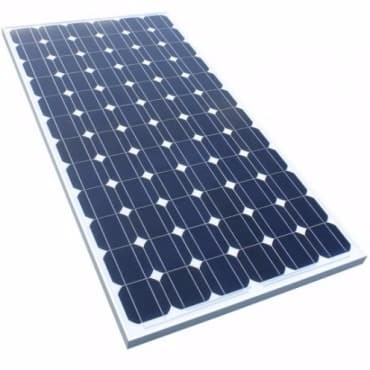Nigeria’s apex monetary authority, the Central Bank of Nigeria (CBN) on Monday made public the framework for the implementation of the solar connection facility, which it said would create about $2 billion yearly market opportunity.
The apex bank also reiterated that its aggressive deployment of unconventional policies since the outbreak of the COVID-19 was to help manage the supply shock in the system as well as calm inflationary pressure.
The apex bank noted that with less than five per cent penetration currently, of total market potential, the solar programme would see the rollout of five million new solar-based connections in Nigerian communities.
In April this year, the bank said it was setting aside an initial intervention fund of N500 billion over the medium term for manufacturers to procure equipment that would fast-track local production, especially environmentally-friendly energy production.
On the framework released yesterday on its website, the bank said the initiative under the Economic Sustainability Plan (ESP), would further generate about N7 billion in terms of taxes and $10 million in annual import substitution.
Part of the guidelines, the bank said, would be the total prohibition of the use of the facility to finance the importation of fully assembled solar components and Balance of System (BoS).
It added that the eligible obligors should demonstrate verifiable evidences of technical capacity, must show financial capacity and provide evidence of an irrevocable off-take agreement with one or more Nigeria Electrification Project (NEP) prequalified companies.
On local content, the apex bank stressed that eligible component manufacturers must be Nigerian-owned entities or consortiums, involving a minimum of 70 per cent local ownership.
In line with the programme’s job creation objectives, it said eligible manufacturers must demonstrate a commitment to employing local talent with a detailed vocational and technical training plan.
“The pathways to energy access, financial inclusion and poverty reduction are closely linked and requires a rapid scale of pay-as-you-go (PAYG) off-grid technologies that will create a $2 billion (N7.5 trillion) annual market opportunity as penetration today is less than five per cent of total market potential.
“To support the economic recovery in response to the COVID-19 pandemic, the Federal Government of Nigeria (FGN) has launched an initiative as part of the Economic Sustainability Plan (ESP) to achieve the rollout of five million new solar-based connections in communities that are not grid-connected.
“This programme is expected to generate an additional N7 billion increase in tax revenues per annum and $10 million in annual import substitution.
“The solar connection scheme is a federal government initiative whose objectives are to expand energy access to 25 million individuals (five million new connections) through the provision of solar home systems (SHS) or connection to a mini-grid,” CBN explained.
According to the bank, it would also increase local content in the off-grid solar value chain and facilitate the growth of the local manufacturing industry; and incentivising the creation of 250,000 new jobs in the energy sector.
The intervention facility, it said, was to complement the federal government’s effort of providing affordable electricity to rural dwellers through the provision of long term low-interest credit facilities to Nigeria Electrification Project (NEP) pre-qualified home solar value chain players.
For Participating Financial Institutions (PFIs) and terms of loans, CBN stressed that financial institutions licensed by it to provide banking services in Nigeria will be eligible.
“Funding shall not exceed 70 per cent of the total cost of the project. The facilities granted shall have a maximum tenor of up to 10 years as determined by the project’s cash flow profile but not exceeding 31st December 2030.
“The moratorium on principal shall depend on the type and nature of the project but shall not exceed 2 years or the construction/ completion period, whichever is shorter” the guidelines said.
“For downstream participants which is any company or body corporate involved in the distribution and after-sales support of solar home systems, it prohibited the sale or deployment of fully 100 per cent imported solar home systems components with no proof of existing local content or credible plan for near-term integration of local content.
It also barred the deployment of mini grid projects with 100 per cent imported components solar PV and balance of system with no proof of existing local content or credible plan for near-term integration of local content
“Sanctions arising from infractions or diversion of funds by the PFIs shall attract a penalty at the bank’s maximum lending rate at the time of infraction.
“Non-rendition of returns or the rendition of false returns shall attract the penalty stipulated by BOFIA Section 60. In the event of default in loan repayment (principal and interest), the PFIs shall have the right to charge commercial interest rate on the amount of default
“Unauthorised withdrawals from revenue collection account – the DMB to refund the money within 48 hours of discovery while banks that flout the terms and conditions of the facility are to be sanctioned in line with provisions of the BOFIA Section 60,” CBN added.
(Thisday)








Leave a comment